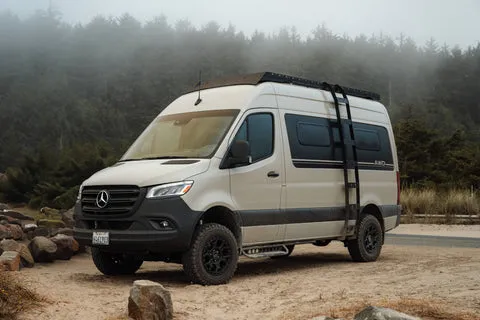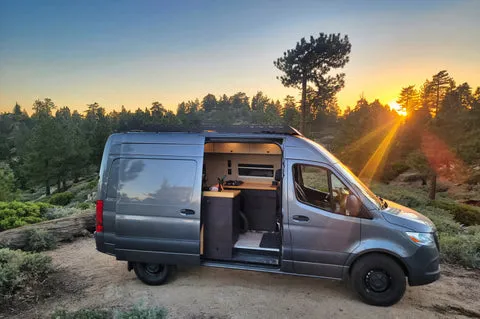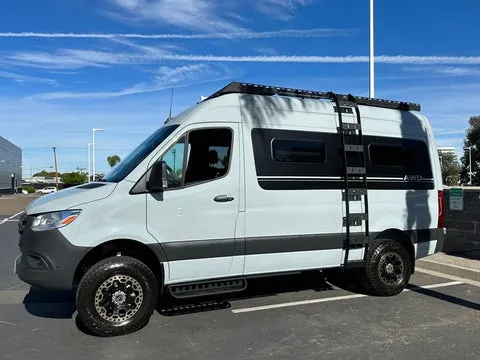Finding safe, legal, and free places to park overnight is a key skill for anyone living the van life, embarking on a road trip, or simply seeking budget-friendly travel options. Knowing exactly where can i park overnight can dramatically enhance your travel freedom, save significant money on accommodation, and provide the flexibility to follow your own itinerary. This guide dives deep into the best strategies and locations to make your overnight parking experience smooth and worry-free.
Whether you prefer the solitude of nature or the convenience of urban amenities, understanding the various types of parking spots and the etiquette required is essential. We’ll explore everything from vast public lands to surprising business locations, helping you navigate the complexities of finding a spot to rest your head when you’re on the road. Let’s unlock the secrets to stress-free overnight parking.
Understanding Free Overnight Parking Options
Free overnight parking refers to locations where you can legally park your vehicle, typically an RV or campervan, for one or more nights without incurring any fees. The primary benefits are cost savings and increased travel flexibility. This practice is often referred to as boondocking, dispersed camping, or wild camping depending on the location and context.
Successfully finding free parking requires research, awareness of local regulations, and a commitment to responsible travel practices. It’s not just about finding a spot; it’s about finding the right spot that is both legal and safe for your needs. This knowledge empowers you to explore more freely.
Types of Locations Where You Can Park Overnight
There are several common categories of locations where overnight parking is frequently permitted, each with its own set of rules, advantages, and potential drawbacks. Knowing these types will broaden your options considerably when searching for a place to stop for the night. It’s always wise to have multiple potential spots in mind before the end of the day.
Public Lands
Vast expanses of public land managed by government agencies often permit free overnight stays. Agencies like the Bureau of Land Management (BLM) and the US Forest Service (USFS) are prime examples. These lands, common in western states like Nevada or Arizona, typically allow “dispersed camping” away from developed campgrounds.
Rules vary by specific region and land management agency, so checking their official websites or local ranger district offices before arrival is crucial. Permits might occasionally be required in high-use areas, but generally, basic dispersed camping on BLM or National Forest land is free for up to 14 days in one spot. These locations are often remote, offering solitude and natural beauty, but lack amenities like restrooms or hookups.
 Van parked overnight in a scenic spot on the West Coast, showing where you can park overnight.
Van parked overnight in a scenic spot on the West Coast, showing where you can park overnight.
Rest Areas
Highway rest areas are designed for travelers to take breaks, and many states permit overnight parking. However, regulations differ significantly from state to state. Some states allow overnight stays for a limited number of hours (e.g., 8 or 12 hours), while others strictly prohibit sleeping in vehicles overnight.
Check signs posted at the rest area or consult the state’s Department of Transportation website to confirm the rules. Rest areas offer convenience and facilities like restrooms, but they can be noisy due to traffic and are generally not recommended for extended stays or for setting up camp outside your vehicle. Safety can vary, so remain aware of your surroundings.
Walmart Parking Lots
Walmart stores have historically been a popular option for free overnight parking due to their large, well-lit parking lots and 24/7 operations (though fewer are 24/7 now). While many stores still allow it, corporate policy now leaves the decision up to individual store managers.
Finding Your Perfect Amateur Astronomy Telescope – Expert Guide 2025
Discover the Best Michigan Places to Visit for Unforgettable Adventures in 2024
Discover the Top 11 nevada places to visit
It is absolutely essential to call or visit the store’s customer service desk upon arrival and ask the manager if overnight parking is permitted. If they say yes, confirm where they’d like you to park. Always be respectful, quiet, and leave no trace. A “no” from the manager should be respected without argument; there are other options.
Casinos
Many casinos, particularly those catering to RV travelers in states like Nevada, offer designated areas for free or low-cost overnight parking. They often see it as a way to attract potential customers into the casino.
Check with the casino’s security or front desk upon arrival. Some might require you to sign up for a player’s card or check in. These spots often have security patrols, adding a layer of safety, but can also be busy and noisy. Using some of the casino’s amenities (like restrooms or restaurants) is good etiquette.
 Camper van parked in a large parking lot, an option for finding where can i park overnight for free.
Camper van parked in a large parking lot, an option for finding where can i park overnight for free.
Truck Stops
Large truck stop chains like Pilot, Flying J, and Love’s have dedicated parking areas for trucks and RVs. While their primary purpose is for professional drivers, RVers can often use them.
These stops offer numerous amenities including fuel, food, showers, and sometimes dump stations. Parking is often free, but can be very noisy with idling trucks. Respecting the space needed by truckers is crucial, as these are their essential rest stops. Arriving earlier in the evening can help secure a spot before truck traffic peaks.
Churches and Community Centers
In some cases, local churches or community centers might allow overnight parking, especially if you are passing through and need a one-night stop. This is less common and requires direct permission.
Politely approach the office or contact a representative in advance. Be prepared to explain your situation and ask permission specifically for one night. Being respectful and offering a small donation if possible is highly recommended if they grant permission. These are often quiet locations but may lack amenities.
Trailheads and Visitor Centers
Parking lots at popular hiking trailheads, especially in national forests or state parks (where allowed), might permit overnight parking for hikers. Similarly, some visitor centers associated with parks or tourism may have designated spots.
Always check signage or inquire with park staff or visitor center personnel. These locations are often quiet and scenic, perfect for accessing nature, but may have specific hours or restrictions. Avoid peak usage times and always adhere to Leave No Trace principles.
Essential Apps and Resources for Finding Parking
Numerous apps and websites are invaluable tools in your search for where can i park overnight. Leveraging these resources can save you time and provide crucial information about potential spots, including reviews, amenities, and reported legality.
The Dyrt
The Dyrt is a popular app that lists both paid campgrounds and free public land camping (boondocking) spots on BLM and National Forest lands. Its maps can show public land boundaries, helping you locate legal dispersed camping areas. The pro version offers offline maps, which are incredibly useful in remote areas without cell service.
iOverlander and FreeRoam
These apps are specifically geared towards finding free wild camping spots and informal overnight parking locations. They rely heavily on user-submitted reviews, photos, and information about legality, safety, and available amenities (or lack thereof). They are excellent resources for finding off-the-beaten-path locations reported by other travelers.
Seeker and RV Parky
Seeker is another app focused on finding dispersed camping on public lands. RV Parky is more comprehensive, listing campgrounds, RV parks, dump stations, and free overnight parking locations often found at businesses. Using a combination of these apps provides a wider range of options.
Business Locations: A Practical Guide
While public lands offer solitude, business parking lots provide convenience, often located near necessary services. However, parking at businesses comes with the added requirement of checking policies and being discreet.
Common Business Types That May Allow Overnight Parking
Beyond Walmart, other large retailers and businesses sometimes permit overnight parking for RVers and van dwellers. These include:
- Target: Similar to Walmart, policy varies by store. Always ask management.
- Cabela’s / Bass Pro Shops: Often cater to outdoor enthusiasts and may have designated RV parking. Confirm with staff.
- Cracker Barrel: Known for being RV friendly, many locations allow overnight parking. Ask inside.
- Home Depot / Lowe’s: Less common than Walmart, but possible, especially in less busy locations. Always get permission from a manager.
- Costco / Sam’s Club: Large parking lots, but permission is hit-or-miss and depends entirely on the manager and local ordinances.
Remember, even if a chain generally allows it, the decision is usually up to the individual store manager based on local regulations and past experiences with overnight parkers. Limiting your stay to one night is standard courtesy.
 Comfortable interior of a van life setup, ready for an overnight stay.
Comfortable interior of a van life setup, ready for an overnight stay.
Safety and Research are Paramount
Finding a spot is just the first step; ensuring it’s a safe place to spend the night is equally important. Thorough research and scouting the location are non-negotiable steps before settling in.
Assessing Neighborhood Safety
If you’re considering an urban or suburban location, do a quick check on the neighborhood’s safety. Resources like Niche.com or simply searching online for crime rates in the specific area can give you valuable insight. Trust your gut feeling when you arrive; if a place feels off, it’s best to move on.
Scouting Locations Before Parking
Always arrive at your potential overnight spot with enough daylight to see the area clearly. Drive around, observe the surroundings, check for “No Overnight Parking” signs, and note any unusual activity or suspicious individuals. A quick scouting trip can prevent an uncomfortable or unsafe night. Look for good lighting and clear exit routes.
Rules and Etiquette for Responsible Overnight Parking
Responsible behavior is crucial for maintaining access to free overnight parking spots. The core principle is simple: leave the location in better condition than you found it.
Leave No Trace
This is paramount. Take all your trash with you. Properly dispose of human and pet waste. Do not start campfires unless in designated areas where fires are permitted (rare for informal overnight spots). Do not disturb vegetation or wildlife. Your goal is to be invisible and leave zero impact.
Have an Exit Plan
Always be aware of your surroundings and know how you would quickly and safely exit the area if necessary. Park your vehicle facing the exit or in a position that allows for easy departure. Keep keys readily accessible. This isn’t about being paranoid, but prepared.
 Camper van parked by trees, illustrating safe overnight parking options.
Camper van parked by trees, illustrating safe overnight parking options.
Park in Well-Lit Areas
When parking in urban or semi-urban locations, choose well-lit spots if possible. This can deter potential issues. Use blackout curtains or window coverings inside your vehicle to maintain privacy and block out external light, making your presence less noticeable from the outside.
Be Inconspicuous (Stealth Camping)
Especially in non-traditional spots (like residential streets where allowed, or certain business lots), try to blend in. Avoid setting up chairs, awnings, or outdoor cooking areas. Keep noise to a minimum. Arrive late and leave early. The less you draw attention to yourself, the less likely you are to be bothered. Your vehicle should look like it’s just parked, not camped.
Know the Local Ordinances
“No Overnight Parking” signs are the most obvious indicators, but local city or county ordinances can also prohibit sleeping in vehicles on public streets or in certain zones. Checking local laws online before arriving in a new area is the most reliable way to know if street parking overnight is legal. Some cities actively enforce these rules.
Final Thoughts and Tips
Finding where can i park overnight successfully is a skill that improves with practice and research. Always prioritize safety and legality. Be prepared to have a backup plan if your initial spot doesn’t work out.
Stay alert and trust your instincts. If a location feels unsafe or you are asked to leave, do so calmly and find an alternative spot. Respect the local community, the environment, and the rules of the location. By being a responsible van lifer or traveler, you help ensure these free parking options remain available for everyone. Embrace the freedom and flexibility that comes with finding your own spot under the stars or conveniently located near city amenities.
Frequently Asked Questions (FAQ)
Is it legal to sleep in your car anywhere?
No, it is generally not legal to sleep in your car just anywhere. Laws vary significantly by location, including states, counties, and cities. Many places have specific ordinances against overnight parking or sleeping in vehicles on public streets or property. Always check local laws and signs.
Can I park overnight at Walmart?
Walmart’s corporate policy allows individual store managers to decide if they permit overnight RV or van parking. Many still do, but it’s crucial to ask the specific store manager for permission upon arrival. Never assume it’s allowed without asking.
What is dispersed camping?
Dispersed camping is camping on public lands (like National Forests or BLM land) outside of designated campgrounds. It is usually free and offers primitive camping without amenities. Rules vary by location, but typically require camping a certain distance from roads, water sources, and developed areas.
Are rest areas safe for overnight parking?
Safety at rest areas varies. They are generally well-lit and patrolled, but can also be targets for crime. Remain aware of your surroundings, lock your doors, and trust your intuition. They are best for short, necessary stops, not long-term stays.
How can I find free overnight parking spots?
Use resources like the apps mentioned (The Dyrt, iOverlander, FreeRoam, RV Parky), research public land maps (BLM, USFS), check store policies, and look for areas known for boondocking. Always scout locations in person before committing to staying overnight.
